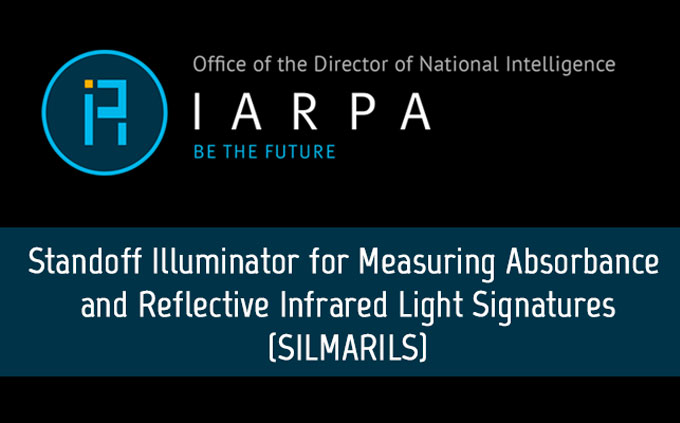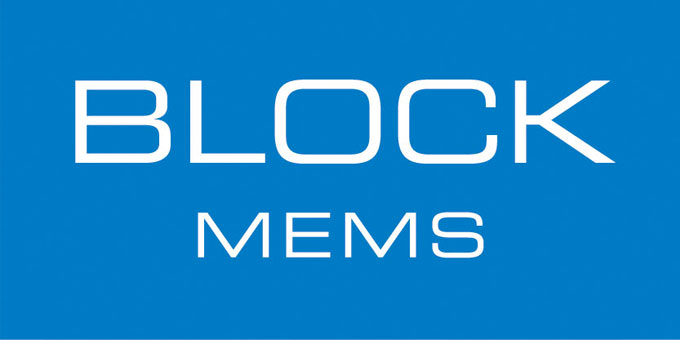Block MEMS, LLC (Block) has been awarded Phase II of the Intelligence Advanced Research Programs Activity (IARPA) Program for the standoff detection of explosives and toxic chemical threats.
Block was chosen for Phase II in a competitive down-selection process.
Under Phase I, Block successfully demonstrated the ability to detect trace quantities of explosives and other threats on multiple surfaces at 1 and 5 meter standoff distances in a few seconds.
A critical achievement under Phase I has been the development of a benchtop system based on quantum cascade lasers and an innovative chemical detection algorithm.
The algorithm combines powerful data processing techniques, simulations of light/material interactions, and modeling of anticipated detected signatures in order to eliminate the effect of clutter, reduce false alarm rates, and improve limits of detection.
 The IARPA program is called “Standoff Illuminator for Measuring Absorbance and Reflectance Infrared Light Signatures” (SILMARILS).
The IARPA program is called “Standoff Illuminator for Measuring Absorbance and Reflectance Infrared Light Signatures” (SILMARILS).
The contract value of the program is now at $10.7 Million.
The program is managed by the U.S. Air Force Research Laboratory at Wright-Patterson Air Force Base, Ohio.
“I am very pleased to receive the second Phase of the SILMARILS Program,” said Dr. Anish Goyal, Block’s VP of Technology and Principal Investigator of the SILMARILS Program at Block.
“The achievements of the previous Phase have taken a significant step towards the ultimate goal of the SILMARILS Program to be able to detect explosives and other chemicals at standoff distances of 30 and 50 meters.”
“The ability to not only detect Chemical Warfare Agents (CWAs), but Explosives and Pharmaceutical Based Agents (such as Fentanyl) as well at these standoff distances is addressing a strong need within the Intelligence Community, the Defense Department and the Department of Homeland Security.”
Standoff ILluminator for Measuring Absorbance and Reflectance Infrared Light Signatures (SILMARILS)
The SILMARILS program aims to develop a portable system for real-time standoff detection and identification of trace chemical residues on surfaces using active infrared spectroscopy at a 30 meter range.

Figure 1 provides some representative examples of potential SILMARILS applications.
These notional operational concepts are designed to motivate an understanding of program goals and metrics, and as such should not be taken as either a comprehensive list of potential applications, or a guarantee that any of these specific applications will be implemented.
Program goals include:
- High chemical sensitivity and specificity across a broad range of target classes
- Effective operation in a real-world environment accounting for issues such as gas phase and surface-adsorbed clutter, varying substrates, temperature, humidity, indoor/outdoor background light
- A system that is eye-safe and has a visually unobservable illumination beam
- Human-portable size and power draw commensurate with limited-duration battery operation, and
- Arapid scan rate

“We are honored to receive this award and I am very proud of the accomplishment of the Block team under the SILMARILS Program,” added Dr. Petros Kotidis, Block’s CEO.
“Ranging from protection of soft targets against explosive terrorist attacks and faster check-in lines at transportation terminals and airports, to detection of Chemical Warfare Agents (CAWs) and better surveying of contaminated ground and surfaces, the SILMARILS capability will revolutionize the field of chemical security.”
 Block MEMS/Engineering is a leading development, engineering and manufacturing company focusing on the commercialization of high performance Quantum Cascade Lasers (QCLs) and FTIR spectrometers.
Block MEMS/Engineering is a leading development, engineering and manufacturing company focusing on the commercialization of high performance Quantum Cascade Lasers (QCLs) and FTIR spectrometers.

















